UN Commission on the Status of Women: Women’s Empowerment and Its Link to Sustainable Development
At the 2016 United Nations Commission on the Status of Women (UN CSW), I realized anew the intersectionality of gender equality and other justice concerns. The theme of this year’s UN CSW, “Women’s Empowerment and Its Link to Sustainable Development,” underscores this connection.
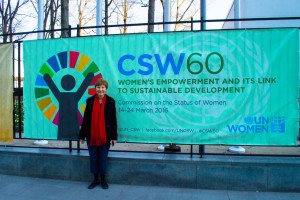 Income inequality is inextricably linked to gender inequality. Of the 1.3 billion people worldwide in extreme poverty, 70% of them are women or girls. Women work two-thirds of the world’s working hours, but earn only 10 percent of the world’s income. They own less than 1 percent of the world’s property. It is impossible to eliminate economic injustice without eliminating gender injustice and gender inequality.
Income inequality is inextricably linked to gender inequality. Of the 1.3 billion people worldwide in extreme poverty, 70% of them are women or girls. Women work two-thirds of the world’s working hours, but earn only 10 percent of the world’s income. They own less than 1 percent of the world’s property. It is impossible to eliminate economic injustice without eliminating gender injustice and gender inequality.
The UN CSW also emphasized the connection between sexism, racism, heterosexism, ableism, ageism, violence, and exploitation of the earth. Working for gender equality is imperative to justice and peace.
Empowered women lead the way in justice and peace activism. One session co-sponsored by the Medical Mission Sisters, addressed the prevalence of human trafficking and how to eliminate this terrible violence and help victims to take control of their lives. Another session, “Mothers of Peace—Faces of Courage & Commitment,” highlighted women who are standing against Islamic extremism.
Another panel discussed collaboration with the legal community to take action toward eliminating violence against senior women and all women. Panelists emphasized the spiritual as well as the physical and emotional suffering caused by violence against women.
The 2016 UN Commission on the Status of Women (UN CSW) made commitments to work for gender equality and the empowerment of all women and girls. Women and girls from 45 countries—including Uganda, Sudan, Nigeria, Dominican Republic, Egypt, Bangladesh, Belgium, Cuba, Indonesia, Iran, Japan, Israel, and United States—gathered to develop global policies to promote gender equality and women’s empowerment worldwide. 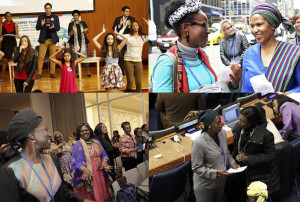
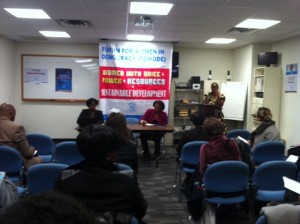
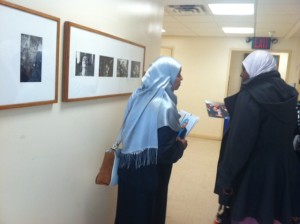 In spite of the enormous challenges that women still face, we are making slow progress toward equality.
In spite of the enormous challenges that women still face, we are making slow progress toward equality.
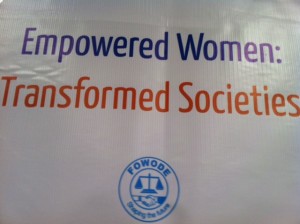
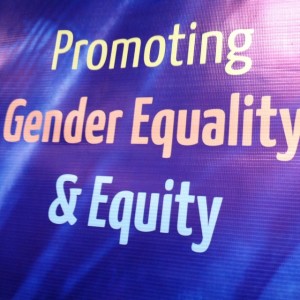
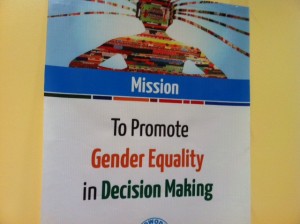 Here are some of the reaffirmations and commitments made at this year’s United Nations Commission on the Status of Women:
Here are some of the reaffirmations and commitments made at this year’s United Nations Commission on the Status of Women:
- The Commission reaffirms the commitments to gender equality and the empowerment of all women and girls made at United Nations summits and conferences.
- The Commission reaffirms that the promotion and protection of, and respect for, the human rights and fundamental freedoms of women, including the right to development, should be mainstreamed into all UN policies and program aimed at the eradication of poverty, and also reaffirms the need to take measures to ensure that every person is entitled to participate in, contribute to, and enjoy economic, social, cultural, and political development and that equal attention and urgent consideration should be given to the promotion, protection and full realization of civil, political, economic, social, and cultural rights.
- The Commission welcomes the commitment to gender equality and the empowerment of all women and girls in the UN 2030 Agenda for Sustainable Development, recognizes that women play a vital role as agents of development, and acknowledges that realizing gender equality and the empowerment of all women and girls is crucial to progress across all Sustainable Development goals. The Commission stresses that the achievement of full human potential and of sustainable development is not possible if women and girls continue to be denied the full realization of their human rights and opportunities.
- The Commission expresses concern that the feminization of poverty persists and emphasizes that the eradication of poverty in all its forms is an indispensable requirement for sustainable development. The Commission acknowledges the mutually reinforcing links between the achievement of gender equality and the empowerment of all women and girls and the eradication of poverty.
- The Commission reaffirms that the right to education contributes to the promotion of gender equality and the empowerment of women and girls, human rights, sustainable development, and poverty eradication.
- The Commission recognizes that achievement of the UN 2030 Agenda for Sustainable Development requires the full integration of women into the formal economy, including their equal opportunities for leadership at all levels of decision-making in political, economic, and public life and through changing the current gender-based division of labor to ensure that unpaid care and domestic work is equally shared.
- The Commission recognizes that conflicts, human trafficking, terrorism, violent extremism, natural disasters, and other emergency situations disproportionately affect women and girls.
- The Commission recognizes the challenge climate change poses to the achievement of sustainable development and that women and girls, who face inequality and discrimination, are often disproportionately affected by the impact of climate change and other environmental issues.
- The Commission strongly condemns all forms of violence against all women and girls. It expresses deep concern that discrimination and violence against women and girls continues in all parts of the world and that all forms of violence against women and girls are impediments to the full achievement of gender equality and the empowerment of women and girls, and to the development of their full potential as equal partners with men and boys.
- The Commission, while welcoming progress made toward gender equality and the empowerment of women and girls, emphasizes that no country has fully achieved gender equality and the empowerment of women and girls, that significant levels of gender inequality persist globally, and that many women and girls experience marginalization owing to intersecting forms of discrimination throughout their lives.
- The Commission recognizes the importance of fully engaging men and boys as agents and beneficiaries of change in the achievement of gender equality and the empowerment of all women and girls, and as allies in the elimination of all forms of discrimination and violence against women and girls.
- The Commission commits to ensuring the promotion and protection of the human rights of all women and their sexual and reproductive health and reproductive rights.
- The Commission commits to promote and respect women’s and girls’ right to education at all levels, ensuring that women and girls have equal access to career development, training, scholarships, and fellowships, and by adopting positive action to build women’s and girls’ leadership skills and influence; adopt measures that promote, respect and guarantee safety of women and girls in the school environment, and measures to support women and girls with disability in all levels of education and training.
- The Commission commits to adopt and ensure the effective implementation of laws that criminalize violence against women and girls, as well as comprehensive, multidisciplinary, and gender-sensitive preventive and protective measures to eliminate all forms of violence against all women and girls, in public and private spaces.
- The Commission commits to fully engage men and boys, including community leaders, as strategic partners and allies in achieving gender equality and the elimination of all forms of discrimination and violence against women and girls both in public and private spheres; design and implement national programs that address the role and responsibility of men and boys to ensure equal sharing of responsibilities between women and men in caregiving and domestic work; eliminate social norms that condone violence against women and girls; address the root causes of gender inequality such as unequal power relations, social norms, practices, and stereotypes that perpetuate discrimination against women and girls; and engage them in efforts to achieve gender equality for the benefit of all genders.
- The Commission commits to take measures to ensure women’s full and equal participation in all fields and leadership at all levels of decision-making in the public and private sectors, and in public, social, economic, and political life and in all areas of sustainable development.
- The Commission commits to take measures to ensure women’s full participation at all levels and at all stages in peace processes and mediation efforts, conflict prevention and resolution, peacekeeping, peace building, and recovery.
- The Commission commits to formulate and implement, in collaboration with indigenous women and their organizations, policies and programs designed to strengthen their leadership in sustainable development and to eliminate discrimination and violence against indigenous women and girls, which they are disproportionately vulnerable to and that constitutes a major impediment to indigenous women’s full and equal participation in society, the economy, and political decision-making.
- The Commission commits to increase resources and support for grassroots, local, national, regional, and global women’s organizations to advance and promote gender equality and the empowerment of women and the human rights of women and girls.
- The Commission calls on governments to enhance coordination of national mechanisms for promoting gender equality and the empowerment of women and girls, and to ensure that national planning, decision-making, policy formulation and implementation, budgeting processes, and institutional structures contribute to the achievement of gender equality.
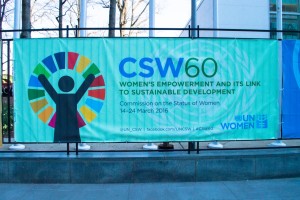
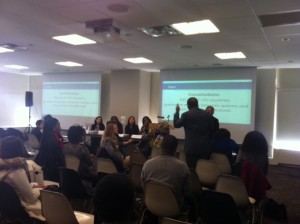
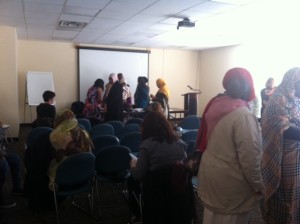
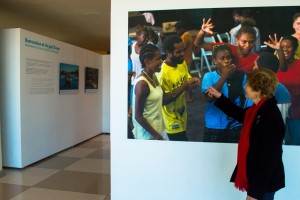
This was a high-powered conference you attended in NYC! The descriptions and photos made me feel I was there standing beside you.